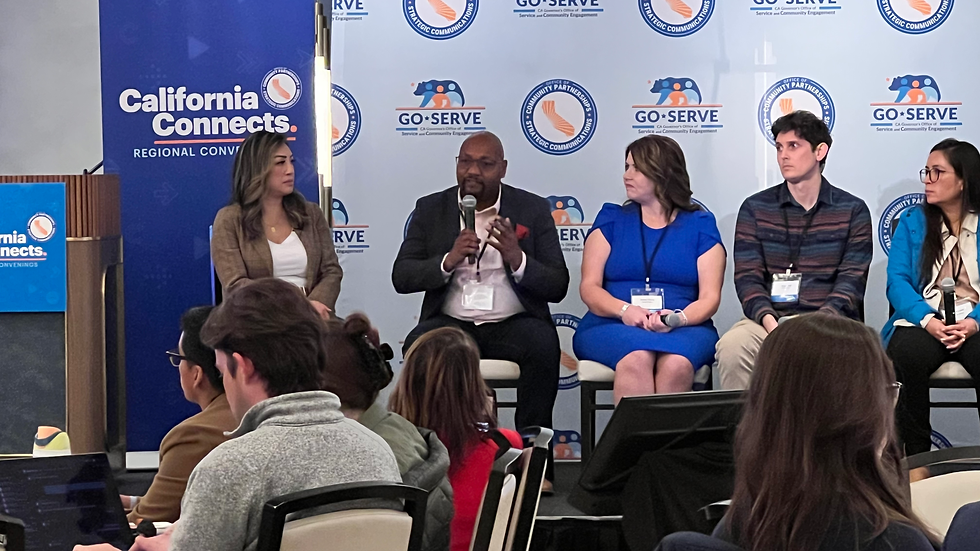Op-Ed: Prop 23 jeopardizes the health of people like me
- The ONME Newswire

- Oct 12, 2020
- 3 min read
By DeWayne Cox

The most frustrating part of politics is when people use it to pursue political agendas at the expense of others. That’s exactly what’s happening with Prop 23 on the California November ballot. The health of people like me is at the mercy of voters who I hope will not be misled.
Prop 23 jeopardizes the health – and ability to stay alive – of people like me. What’s even worse is that the people behind the dangerous and costly Prop 23 are pretending to have a good reason for risking my health. Prop 23 offers to fix imaginary problems that don’t actually exist – like requiring dialysis facilities to report infections. That sounds great, except they already do that. Just like the other things listed in the proposition.
The most egregious claim is that it improves patient care by requiring on-site physicians at dialysis centers. Again, this sounds great unless you are familiar with how dialysis centers work, why this provision will not improve patient quality care, and how the additional costs will shut down dialysis clinics and put dialysis patients like me at risk.
First, patients are under the care of a specialist (nephrologist) who determines, monitors, and adjusts the individual treatment plans of patients under their care. This includes weekly monitoring visits during one of the hours-long dialysis treatment sessions patients undergo three times every week.
Second, each dialysis facility is heavily regulated by multiple agencies including the federal Centers for Medicare and Medicaid Services and state regulators too. In addition to strict rules about how they operate, clinics are required to have a medical director on staff. Much like the nephrologists, this is a specially trained physician who understands precisely how the kidney functions.
Third, the facilities are packed with specially trained nurses, technicians, dieticians, and social workers who are able to provide different levels of routine or emergency care to patients. In a facility with 100 patients, for example, there are 100 weekly physician visits plus medical directors plus robust numbers of specially trained nurses and allied health professionals in the facility already. There is no shortage of medical care.
With all of that expertise it seems odd to pay for yet another physician to be on site. Normally that would be a way to improve patient care, but that’s not the case here. According to Prop 23, there is no specialized training required for the added physician. In fact, that position could be filled by a dermatologist or podiatrist. Both are important specialties, but they have little to do with kidneys and certainly don’t warrant the extra cost, especially when this additional physician would have no authority over patient care.
Without the ability to provide patient care, the added new physician would be confined to administrative or bureaucratic duties. In a heavily regulated medical industry, the one thing that isn’t missing is more bureaucracy.
Paying for something that brings value makes sense. But paying for something that adds no value makes no sense. Even worse, we have an existing physician shortage that is projected to get worse. Instead of the targeted 60-80 physicians per 100,000 people, most California regions have less than 50. The Inland Empire region, which has a high percentage of Black residents, has only 39. The California Healthcare Foundation estimates the statewide shortage will grow to 10,500 by the year 2030. That’s also before adding Prop 23’s multiple new physicians for each of California’s 600 dialysis clinics – not for patient care, but for bureaucracy.
People who read newspapers are already educated enough to see past the lies. My concern is the people who aren’t informed. My fate rests in their hands because forcing dialysis centers to close makes it less likely I can get the treatment I need.
Vote NO on Prop 23 and join with me, with other patients and more than 100 groups including the California Medical Association, American Nurses Association\California, the California State NAACP, Minority Health Institute and many others. Then educate your friends so they can vote No too.
#propositions #prop23 #DeWayneCox #editorials #Blackvote #ballot #November3 #PresidentialElection #COVID19 #health #AlexPadilla #BlackPodcasts #2020Census #2020Elections #ONMETV #BlackPodcasts #BlackNews









Comments